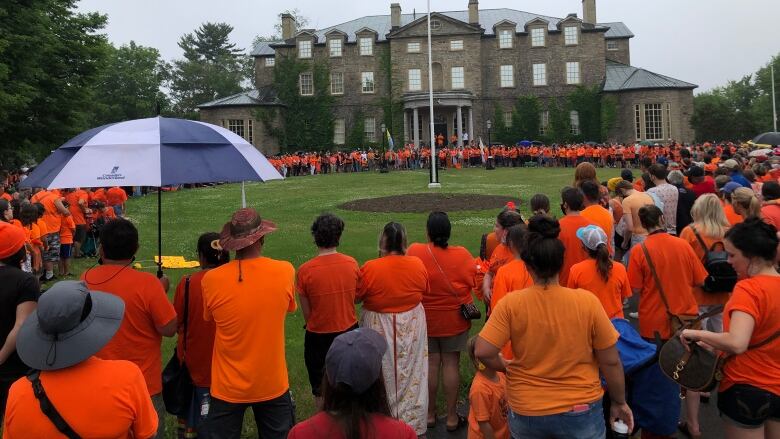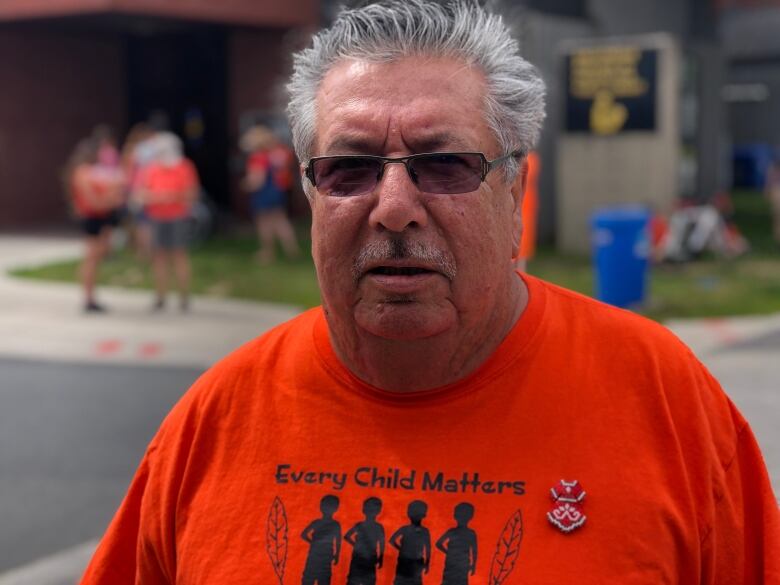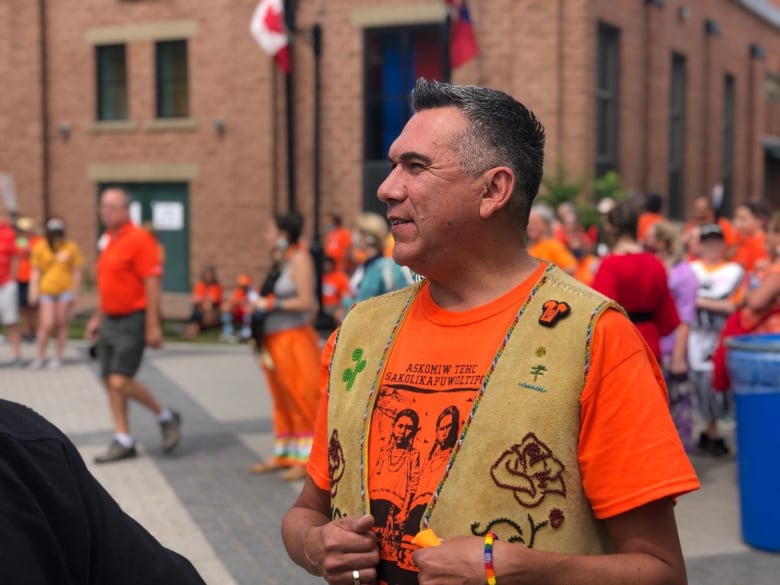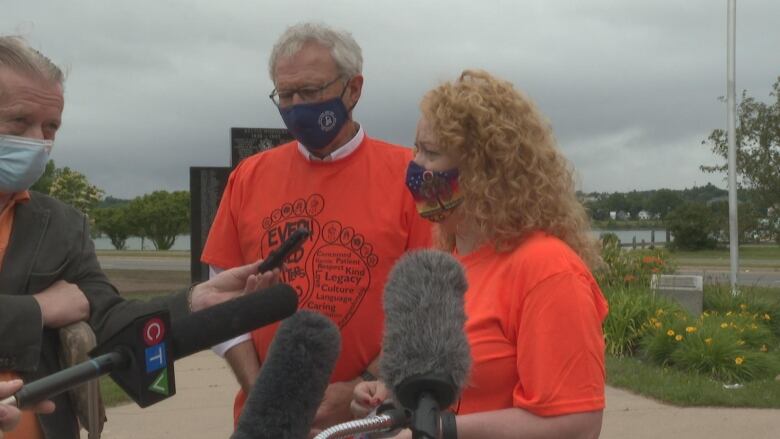Hundreds gather in Fredericton for healing walk to mark 'Resilience Day'
Close to 800 people were present at Government House where the walk ended

WARNING: This story contains distressing details.
Hundreds gathered at noon at the Fredericton Public Library for a healing walk to mark "Resilience Day," planned by the Wolastoqey Nation in place of Canada Day.
This follows the discovery of unmarked gravesnear the sites of former residential schools in Western Canada.
Close to 800 people were seen walking from the library toGovernment House on Woodstock Road. Manywearing orange shirts in solidarity with Indigenous communities.
This Resilience Day event is one of many being held across the country as many grapple with the ongoing traumas of colonialism and reflect on the moral obligation facing those who are non-Indigenousto better educate themselves and help Indigenous communities.
In Fredericton, many laid down children's shoes atGovernment Houseto honour those forced to attend residential schools and subjected to inhumane conditions by staff.
Earlier in the day, a sunrise ceremony was also held at the Old Burial Ground in downtown Fredericton, where a ceremony and drumming took place after the walk.

Allan Tremblayand his family travelled from Tobique First Nation to participate in the walk.
"It affects us because all First Nations people, we're all related," he said.
"I don't care what part of the country you live in because I've worked for the federal government from Nova Scotia to British Columbia and the problems are the same ... the experiences are the same."
St. Mary's First Nation Chief Allan Polchies Jr. was one of the main organizers of the events held today.

For him and other organizers, it was important to involve all communities in the province to encourage greater education on the harms residential schools have wrought upon Indigenouspeoples.
"We're going to educate one another on what residential school was and what it has done," he said.
"Pure genocide."
Premier Blaine Higgs and Minister of Aboriginal Affairs Arlene Dunn attended the healing walk and spoke to the media afterwards.
Higgssaid it was important for members of government to be present at events like the healing walk.
"We've seen most recently in the discovery of these unmarked graves how traumatic that would have been for families ... we can all say, 'We weren't here,' butour country was built upon the foundation that we've seen overour history," he said.

Dunn saidthe government is working to rectify the harm that institutions have caused Indigenous peoples.She mentioned policies around child care and health care, and ensuring that children were in environments that were safe and "culturally appropriate."
Dunn was also asked about a controversial birth alert system that can lead to the apprehension of newborns from parents and why the province still had it in place. She said the government is reviewing the policy and hopes to scrap it.
Government officials have met withWolastoqeyNation chiefs to disucss an investigation into day schools in the province, said Dunn. She saidthey'reawaiting a proposal from the chiefs on how to proceed.

Support is available for anyone affected by their experience at residential schools, and those who are triggered by the latest reports.
A national Indian Residential School Crisis Line has been set up to provide support for survivors and those affected. People can access emotional and crisis referral services by calling the 24-hour national crisis line: 1-866-925-4419.
With files from Gary Moore












_(720p).jpg)


 OFFICIAL HD MUSIC VIDEO.jpg)
.jpg)



























































































